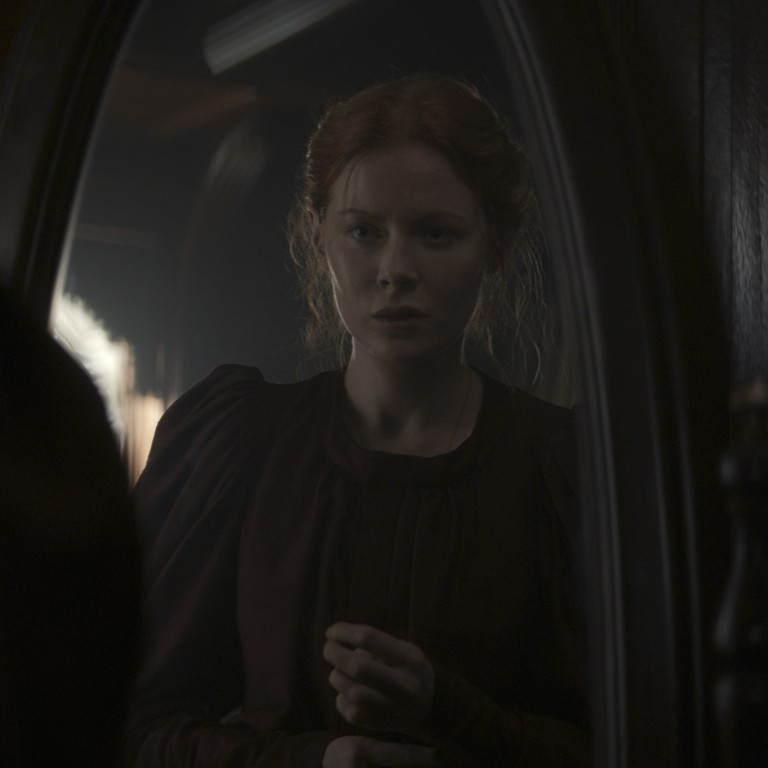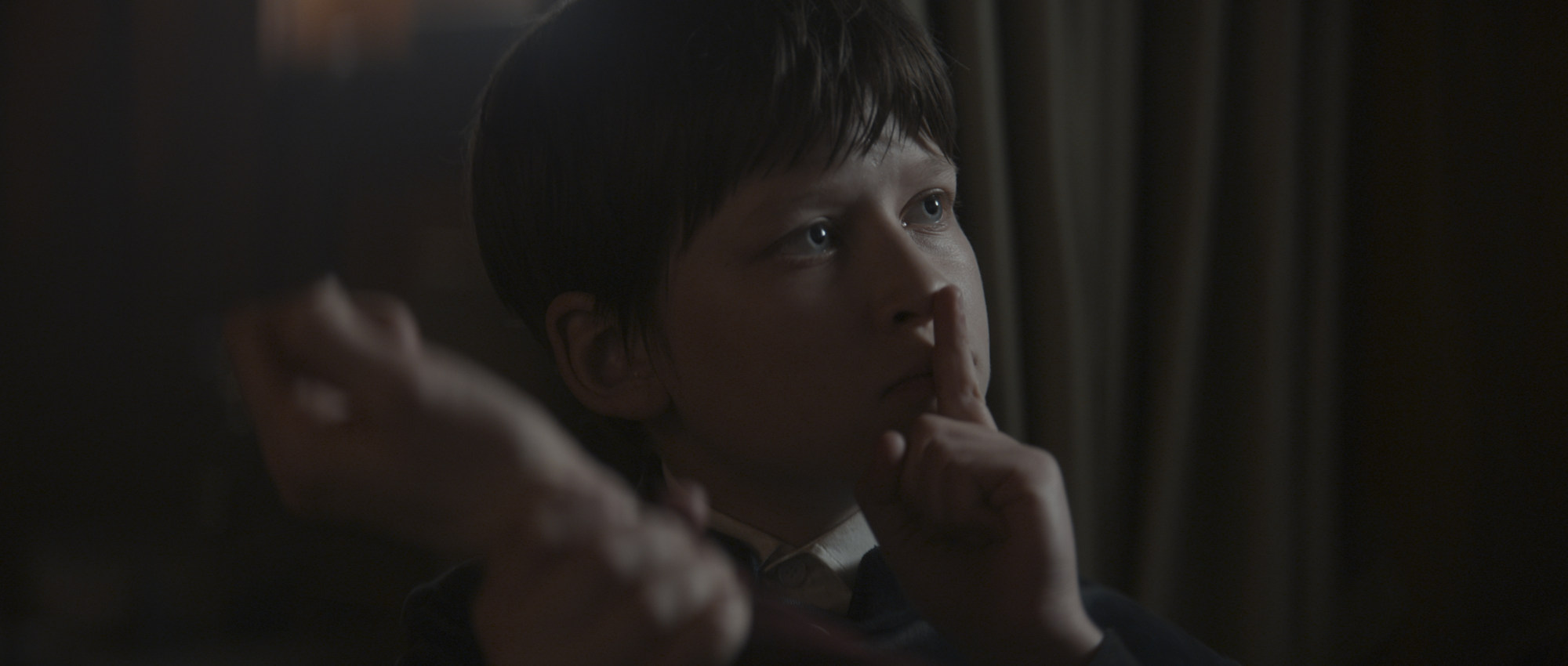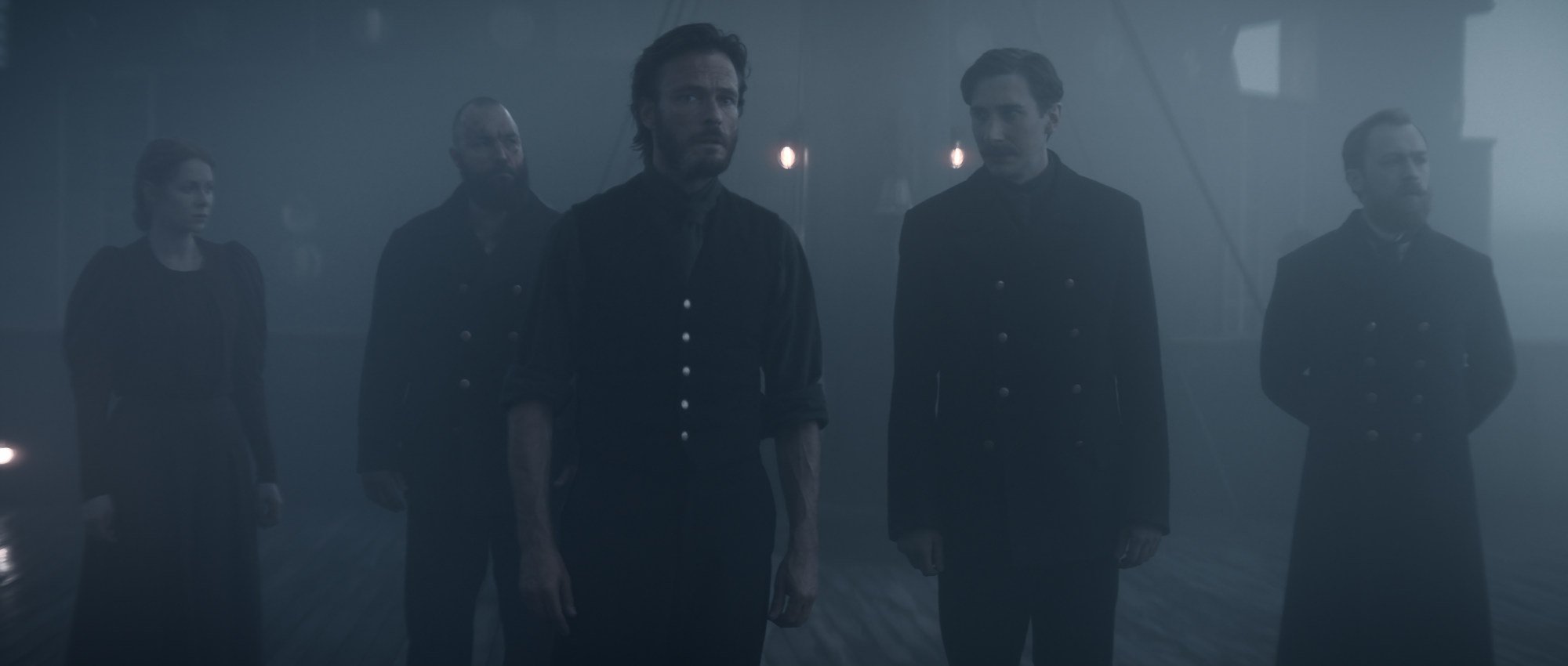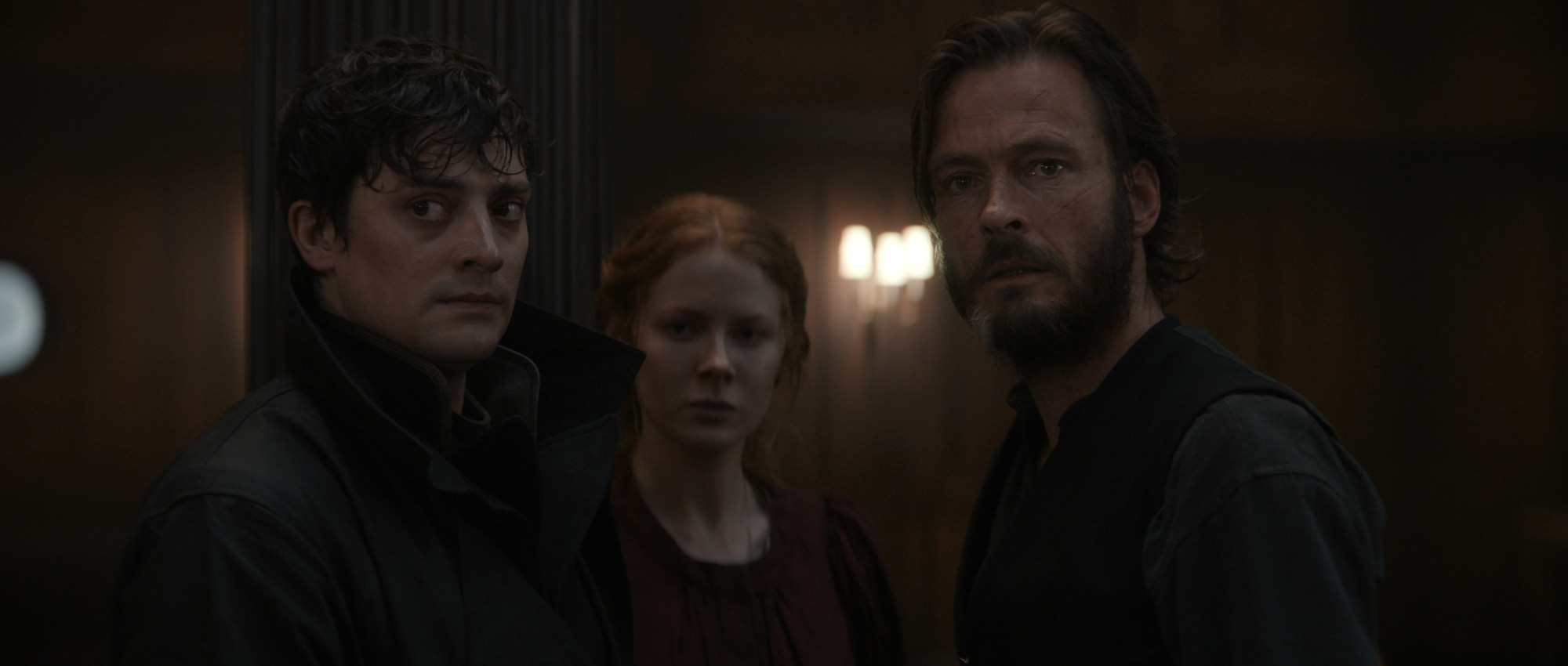
Review | Netflix drama review: 1899 – Dark creators throw everything into unwieldy series that is part period drama, part sci-fi
- The makers of this Netflix mystery pack all they can into the series, often leaving viewers overwhelmed and confused by successive plot revelations
- Emily Beecham leads an international cast playing the crew and passengers of a luxury liner steaming towards the United States that meets a ghost ship
3/5 stars
German science fiction series Dark became one of Netflix’s most talked-about shows during the coronavirus pandemic. Now its writer and director, Baran bo Odar and Jantje Friese, return with another mind-bending odyssey, this time set aboard a 19th century luxury liner.
1899 is officially Germany’s most expensive television show. Brimming with twists and turns, and as likely to confound and infuriate audiences as suck them deeper into the mystery, the show never lacks for scope or ambition.
Beecham plays Maura Franklin, who is travelling to the United States on the luxury liner Kerberos after receiving a letter from her brother inviting her to join him in New York.
Among the other passengers are a couple of wealthy French newlyweds, a Spanish priest and his wayward brother, a pair of Chinese women masquerading as Japanese and, in steerage, a Scandinavian family of fiercely devout Christians.
Guillermo del Toro’s Cabinet of Curiosities: horror story gems on Netflix
Franklin believes that her brother may have been on the Prometheus, a similar ocean liner that disappeared in the Atlantic four months earlier. When the Kerberos picks up a message believed to be from the missing Prometheus, Captain Eyk Larsen (Pietschmann) announces that he is changing course to investigate.
What they discover is a ghost ship, floating dead in the water. A search party finds no sign of its passengers or crew, save for a young boy (Fflyn Edwards) locked in a cupboard, cradling a mysterious, pyramid-shaped object.
But if he is alone, who imprisoned him and who sent the message? While everyone is distracted, a mysterious stranger (Barnard) manages to sneak on board the Kerberos.

After the widespread success of Dark it is no surprise that Odar and Friese’s follow-up is tailored to a more international audience. English, French, German and Cantonese are among the languages regularly spoken, and the difficulties faced by characters trying to understand one another only adds to their already disorienting situation.
There is a sinister, perhaps even supernatural force at play that soon has passengers and crew questioning their own sanity. Mysterious symbols, bizarre dreams and traumatic memories from the past begin to trouble them, and we soon learn that few of the principals are who they claim to be, and that many are either harbouring dark secrets or wrestling with crippling loss.
This dense and convoluted set-up barely scratches the surface of where 1899 takes its viewers. As each episode ends with another jaw-dropping revelation, audiences are left not enlightened, but rather blindsided by the discovery that they know even less of the truth than before.

The execution is undeniably clumsier and more bombastic than in Dark, which was a dizzying head scratcher, but the sense of unbridled bravado illustrates the confidence of this dynamic storytelling partnership.
With each new and unexpected turn, 1899 inevitably draws comparisons to J.J. Abrams’ hit series Lost. Genre conventions are discarded with willing abandon, and the decks and galleys are full of anachronisms. There is even a secret hatch or two.
Character backstories are also similarly teased out in tantalising nuggets, as the ship’s unsettling machinations trigger fiercely vivid recollections of harrowing moments from the past.

For all its narrative hot-stepping, however, 1899 often works best when it allows itself a moment or two to sail calmer seas and simply exist as the rich, character-based period piece that it initially presents itself as.
Franklin is an undeniably fascinating heroine, but this dense ensemble drama is peopled with complex, troubled individuals who were all at sea long before they boarded the Kerberos.
Hong Kong-born actresses Isabella Wei and Gabby Wong make for a fascinating pair, as a Chinese mother and daughter who find themselves in the employ of a wealthy British woman.
Actress Gabby Wong on her first major role, in Netflix series 1899
Similarly, Yann Gael’s French stowaway becomes embroiled in a fascinating drama with two of the other first-class passengers. And, as fans of Titanic can attest, the dynamic between the wealthy patrons of a luxury liner, and those confined to the hellish conditions of steerage, yields a wealth of class-based tension.
Add to that the various crew members, from those piloting the vessel to the quirky and superstitious pair shovelling coal in the ship’s bowels, and 1899 would have succeeded even without steering headlong into a tsunami of Twilight Zone-style weirdness.
Perhaps that is at the root of the show’s problems. Production design, performances and direction fire on all cylinders throughout. Had Odar and Friese chosen to play things straight and deliver a seafaring take on Downton Abbey, the complaints would have been few and far between.

Audience expectations, however, demand that we are taken on a genre-bending, mind-melting, inter-dimensional cruise into the great unknown, and the executive producers eagerly deliver.
But it is precisely this enthusiasm to boldly go where no prestige period drama has gone before that persistently threatens to capsize the show, and leave all concerned lost at sea.
1899 is streaming on Netflix.

